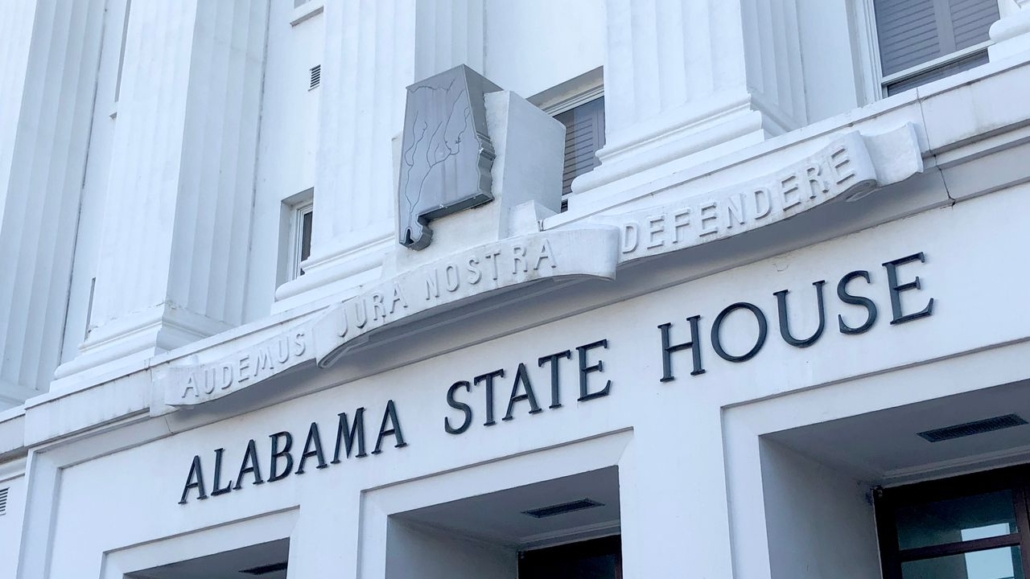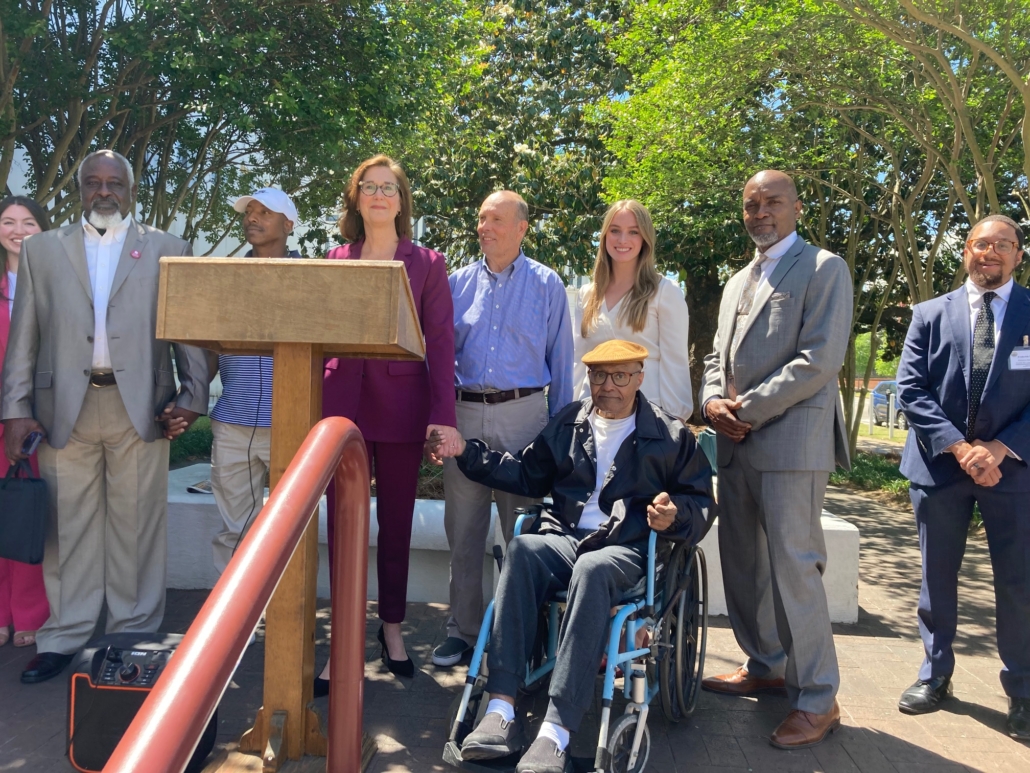by Elaine Burdeshaw, Policy Associate

It’s no secret that Alabama is facing serious problems in our prisons and criminal justice system. In 2023 alone, 325 people died in Alabama Department of Corrections custody– making our prison mortality rate the highest in the nation and five times the national average. We face outdated laws and excessive sentencing that have put older people behind bars for far too long; creating exorbitant medical costs that we as taxpayers pay for, even though this population is the least likely to reoffend and the most expensive to incarcerate. We spend zero dollars on reentry, despite the fact that thousands of people leave correctional custody every year with a few dollars, a bus ticket and no support. All of that, and we’re set to spend over a billion dollars on a new prison that won’t solve all our problems.
And yet, despite all the fires, there are people working to put them out, and every day Alabamians who care to be a part of tackling these things head on. At Appleseed, part of our job, yes, is to point out where the problems are, but our most important role is to help come up with solutions to those problems. This session Appleseed is bringing three legislative proposals that we believe are effective and viable solutions to addressing the prison crisis and improving public safety.

The first is our Second Chance Bill, HB29, which would give judges the authority to review the old cases of individuals sentenced to life without the possibility of parole for crimes where no one was physically injured.
There are over 200 people in Alabama who have been sentenced to die in prison for crimes where no one was physically injured under the state’s Habitual Felony Offender Act. Sentenced in the three-strikes laws era of the 80s and 90s, most of these people are over the age of 60 and will have served at least 24 years by the time the bill were to pass. They’re also the most expensive to incarcerate and the least likely to reoffend. These individuals have served decades in Alabama’s dangerous prisons and still have shown profound rehabilitation. Simply put, these sentences are no longer fair or necessary, and they deserve another chance and the opportunity to live the rest of their lives free. For more information about our Second Chance bill and work, please visit secondchancealabama.org.
The second is our Prison Oversight Bill, which would create an independent ombuds office within the Executive Branch to monitor conditions inside facilities, create necessary transparency for the public, Governor, and legislators, and work to improve the safety and well-being of incarcerated people and Corrections staff.
Since the Department of Justice declared all Alabama prisons for men unconstitutional and sued the Alabama Department of Corrections in 2020, the department has failed to improve and maintain livable, humane conditions within those facilities. In many ways, the conditions have only gotten worse. Incarcerated people are dying at tremendous rates, staffing has hardly improved, drugs and contraband are rampant, and violence continues to keep everyone inside unsafe. It’s past time to create oversight for the ADOC, and the Prison Oversight Bill will help bring what has been absent within the department for a long time– transparency.
Our third and final priority is state funding for reentry housing. $500k in the State Bureau of Pardons and Paroles budget would provide around 50 people 6-12 months of housing in a Jefferson County reentry pilot program.
Currently the state of Alabama provides zero dollars for reentry, even though thousands of people are released from correctional custody every year. We know from our own reentry work with clients and from research that when someone has a stable place to eat, sleep, shower, and receive mail everything else becomes a whole lot easier. We also know from the experiences of other states that provide state funding for reentry services that recidivism and rates of reoffense decrease, and things like employment increase. Our hope is that this pilot program will show the positive impact of stable housing in reentry and the state will begin investing more resources toward that end.
We’ve seen in the last two years what can happen when everyday Alabamians, like us and like you, come together to create positive change. In 2022, we passed HB95, which created a 180 day grace period for people leaving correctional custody before they have to begin paying on accrued fines and fees. In 2023, we passed SB154, which curbed the practice of suspending driver’s licenses for debt-based reasons. And this year with your help and support, we can do it again. See you at the Statehouse!





Leave a Reply
Want to join the discussion?Feel free to contribute!